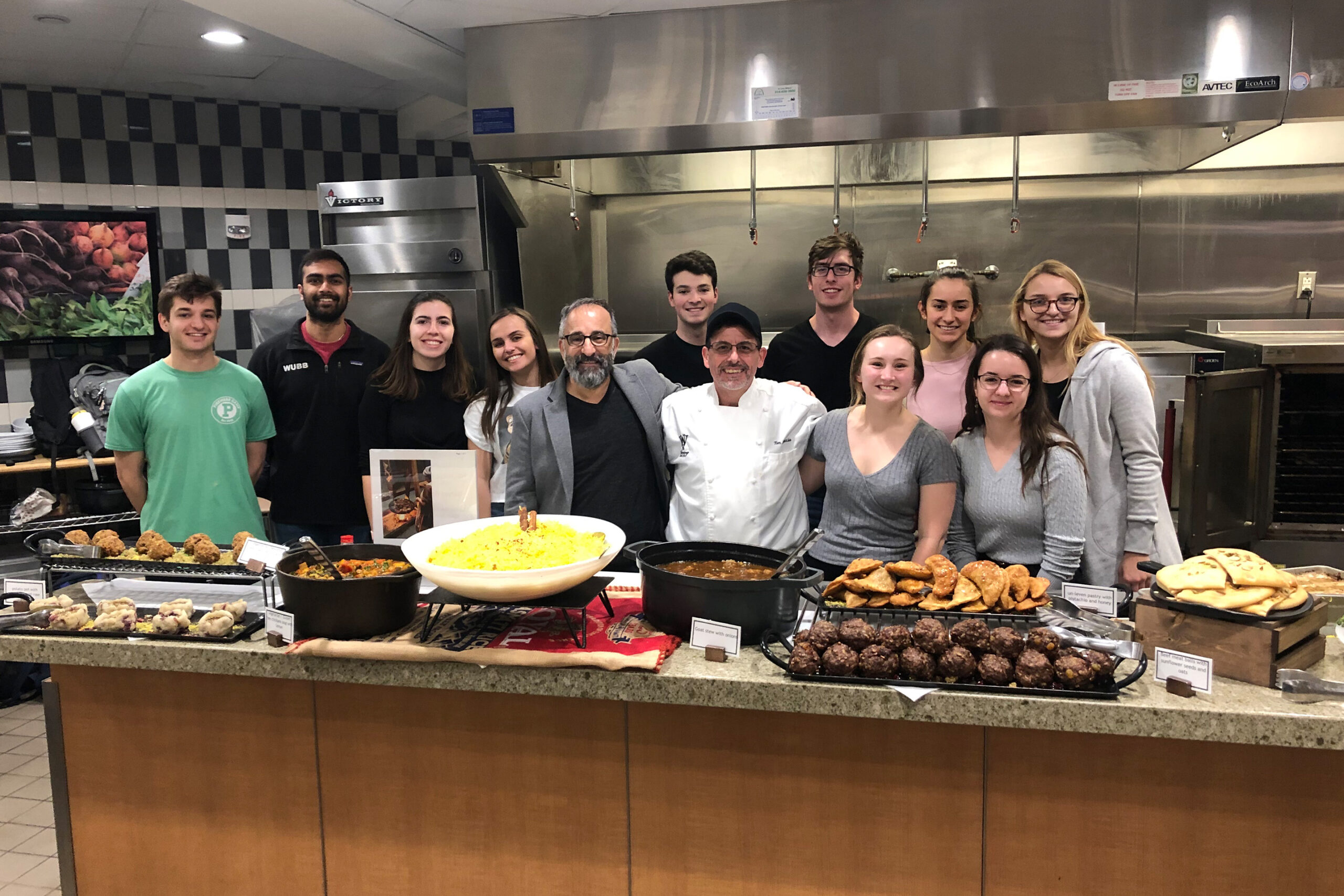Among the courses Hayrettin Yücesoy teaches is one on the history of food in the Middle East. Students who enroll in the popular class receive an educational experience that is rarely offered on campus.
The course, “Of Dishes, Taste, and Class: History of Food in the Middle East,” provides students with the opportunity to understand human beings and human communities from the vantage point of their food habits. Grounding their discussion of food practices in the history of the Middle East, Yücesoy, associate professor of Jewish, Islamic, and Middle Eastern Studies (JIMES), history (affiliate), and global studies in Arts & Sciences at Washington University, and his students examine foodways’ crucial role in how we organize and differentiate ourselves in society and establish and maintain religious, cultural, and communal values and practices.
In addition to rigorous, in-class learning, students engage in tasting, cooking, and sharing as well as reconstructing dishes that date back centuries, and in some cases, millennia. Working alongside his students, Yücesoy has partnered with chefs and dining services on campus to bring historical recipes to life. The experience of cooking, he says, allows students to self-reflect on historical knowledge and interpretation.
“In the textual world of a medieval historian, knowledge is necessarily two-dimensional, which is valuable in its own way,” Yücesoy says. “Adding experience makes learning three-dimensional. One could read and discuss recipes and extrapolate from them information about the individual and larger society, but creating a dish based on an old recipe works like magic, which makes the experience much more tangible.”
The experiential nature of the course is just one reason for students’ rave reviews. “It would be an understatement to say this class was unlike any other class I have taken at WashU,” said Sam Norwitz, 2023 Gates Cambridge Scholar. “The experiential hands-on structure of this class brings the lessons to life and makes learning about the history of food in the Middle East incredibly engaging (and delicious!).” Read Sam’s course review here.
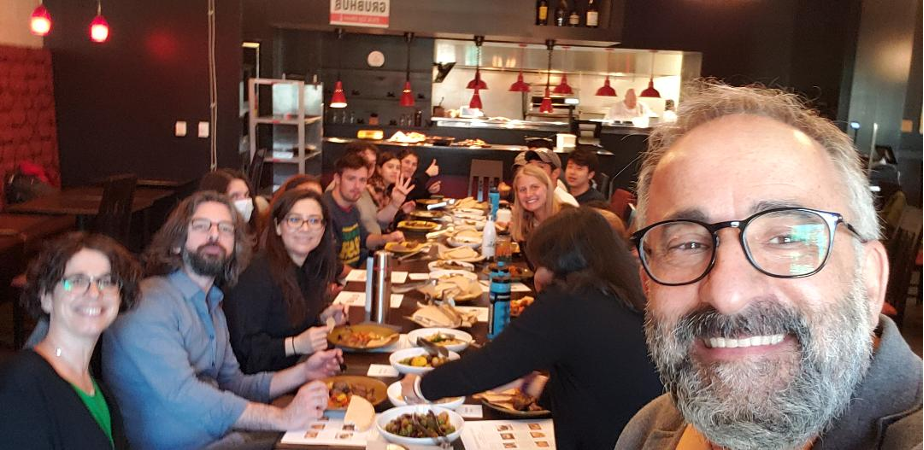
“The experience motivates students to pause and ask fundamental questions,” Yücesoy explains. “How do you reconstruct a dish from a recipe? How do you present it authentically? How do you assess its taste today and how the food might have tasted to those who enjoyed it centuries ago? How certain can you be about your interpretation?”
Yücesoy studies a region that he says has been unfairly misrepresented in the European and North American public discourse. “The run of the mill representations of the region rely on the crutches of religion and culture.”
Convinced that cultural arguments do not provide a satisfactory answer to many of the questions regarding the Middle East, Yücesoy highlights more globally relevant sociopolitical dynamics. He notes that “while culture explains some of the differences among people, it also serves as a cover to serious questions about class, gender, race, and political economy,” all of which brings the course closer to the center of Yücesoy’s research interests.
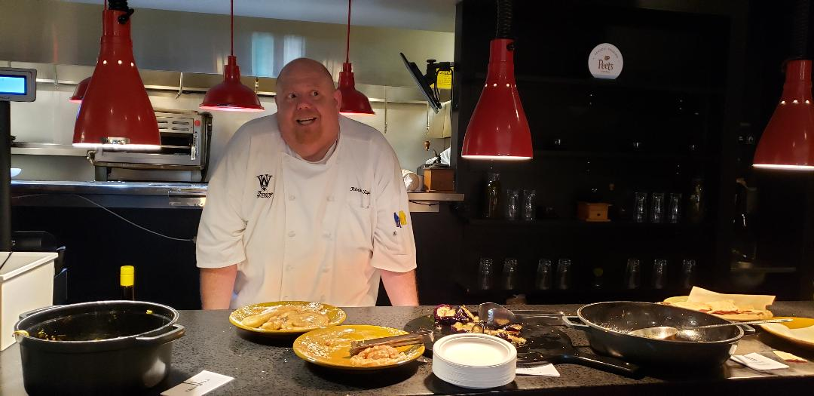
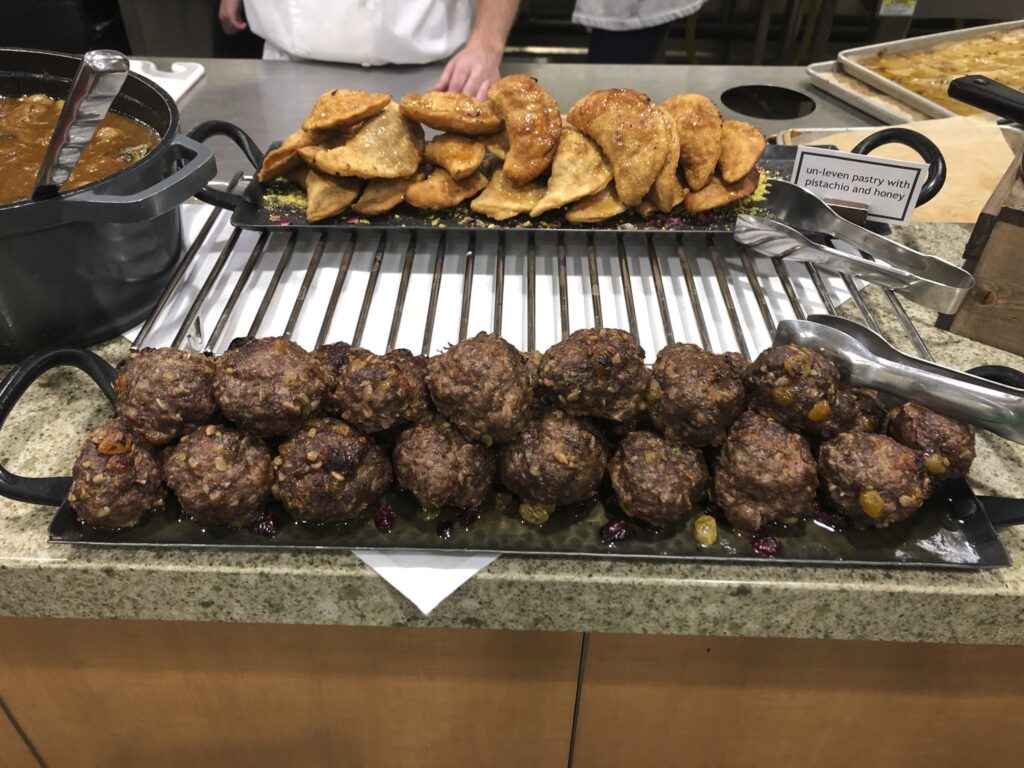
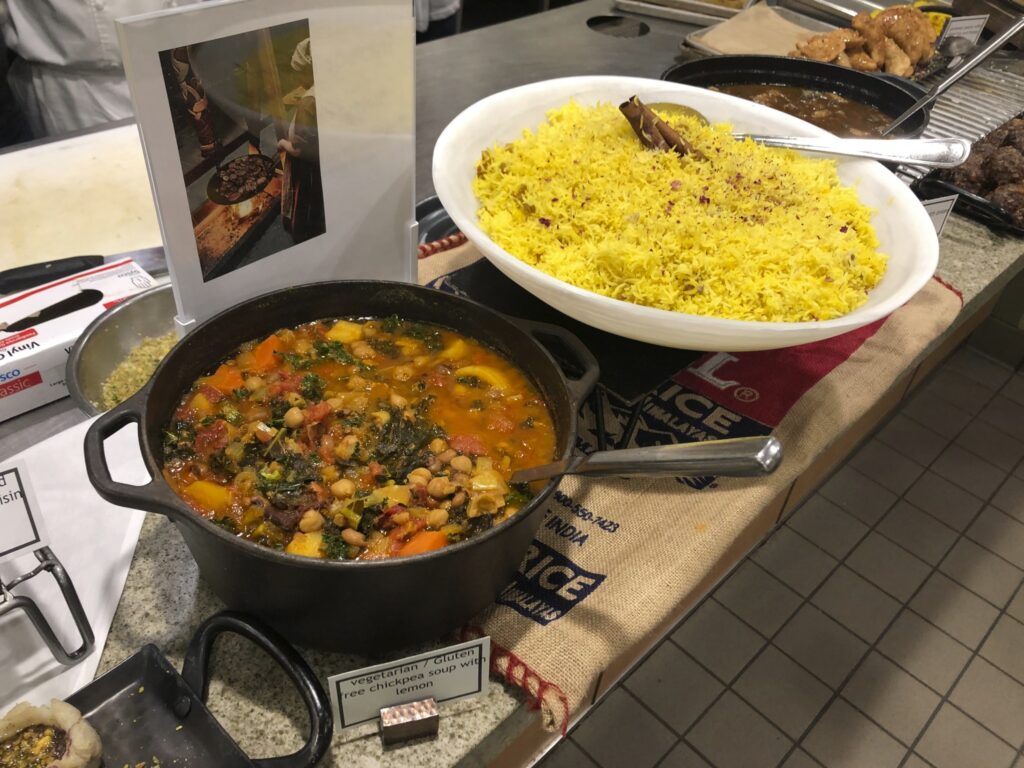
Professor Hayrettin Yücesoy used a cooking demo to help illustrate Middle Eastern life in the 11th century. Students dined on goat stew with mint, meatballs with coriander and sunflower seeds (a vegan version included Beyond Meat), pistachio empanadas, and saffron rice.
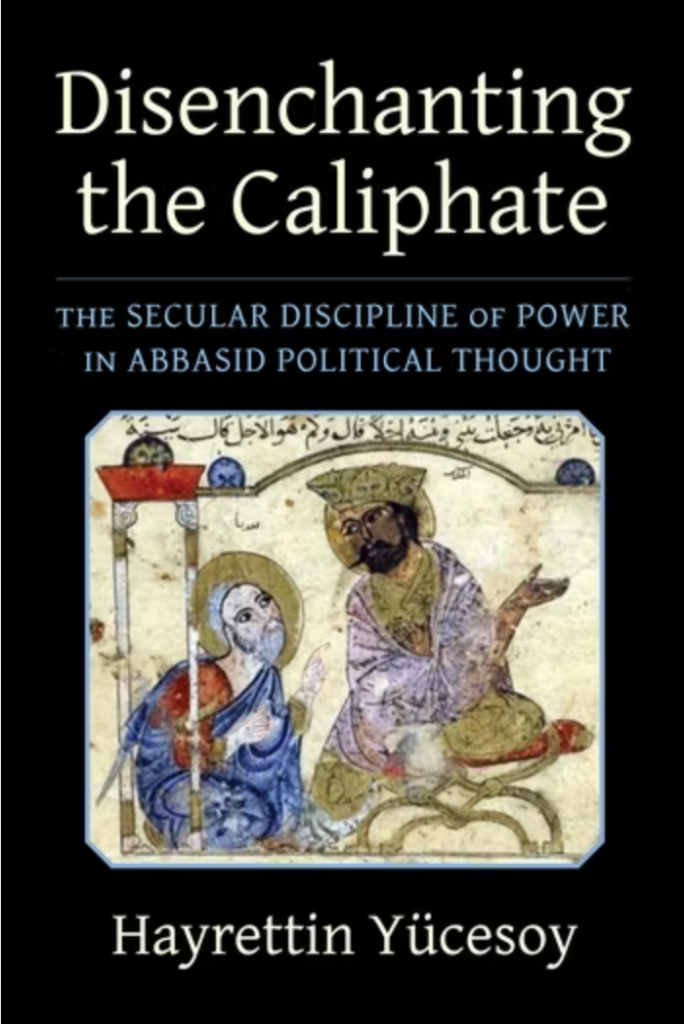
Disenchanting the Caliphate: The Secular Discipline of Power
Hayrettin Yücesoy’s research centers on the intersection of empires, religion, and political thought in the premodern Middle East. In his groundbreaking book, Disenchanting the Caliphate: The Secular Discipline of Power (Columbia University Press, 2023), he argues that unlike the common assumption in modern historiography regarding the histories of Muslim peoples, secular political thought has been a major tradition in the Middle East from the eighth century onward. His research illuminates the political practices of Muslim dynasties in the past and encourages intellectual debate aimed at building a better future.
